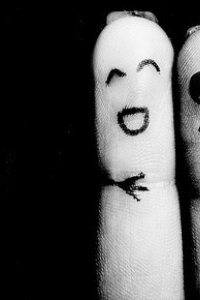This piece was written by the author for a contest run by Sailing Leaf in January, 2018.
“When given the choice between being right or being kind, choose kind.”
― R.J. Palacio, Wonder
“Bablu,” said the boy. I had asked him what the camel’s name was. Bablu. What a funny name. It made me smile. We were five minutes in on our second camel ride in Jaisalmer, Rajasthan, me in the front and my father sitting behind me.
“Where do you live” asked Papa.
“There are some small huts 2 kilometers away from the larger village, that’s where I live.”
After a few more steps, he continued, “School reopens tomorrow. So today is my last holiday. I’ve been working with my grandad through this vacation, helping with the camels, earning a few bucks.”
Karan, as he told us was his name when we started, held Bablu’s reigns and guided him as we talked. He had also told us that he was in grade 6, when we inquired about whether he went to school.
“Hello!” Karan exclaimed, “Money?” he asked with a booming voice and friendly smile, as we rode past a couple of Asians touring the area. On we rode.
My parents, my brother and I were on a road trip in Rajasthan, and just yesterday we had visited the exuberantly overcrowded Jaisalmer Fort. So, expecting a “yes”, I asked Karan, “Have you been to the Jaisalmer Fort?” To my surprise, the answer I got was “No.”
“Once I’m a successful man, I’ll go there with my own money” he replied on being asked “Why?”
He told me he wanted to be in the army when he is older and when he will have completed his education. I smiled once again. I liked this boy.
The reigns of a camel are tied to its body through its nostrils. Did you know that? It looked like some kind of thin bone or white rod that went through one nostril, and out through the other, which was tied to a single rope on both ends. I noticed this as Bablu’s limbs continued to pace tirelessly.
Then, I asked Karan if he had water supply at his home.
“There is a well two kilometers away from our house. We go to collect water everyday.”
“Everyday!?” I said, slightly taken aback.
“Yes, sometimes father goes, sometimes mother, sometimes me, sometimes my sister or brother.”
I learned that he had one sister and one brother.
He continued by explaining that he wanted to buy a cycle to make his family’s life easier. He’d been collecting money and only required 500 rupees more. He told us he would have to make only 300 more after this ride, since he’d be earning 200 rupees from us.
Later, he once said out of the blue, “Whatever you have to say, say it openly, you should never hide anything.” Little did I know that just the next week, the recalling of this very sentence would help me get through a sticky situation.
Not only that, he also preached, “You should never tell lies.” I smiled.
When the time came to climb down the animal and go back to our tents, my father pulled out a 100 rupee note from his wallet and handed it over. The boy pleaded for 50 rupees more, but my father denied. We said thank you and left. On the way back, he explained to me that the boy was trying to fool us. That his story was just a way to earn some more money. That he’s been taught this way.
Then it hit me – maybe he was right. What if his whole story was a hoax? The asking for money from strange tourists, the instant inquiry of my father’s job, his story about the money needed for his cycle, all of these pointed towards my father’s words. Maybe I was wrong. Maybe I was too gullible. Maybe he was a mere swindler.
But I didn’t want him to be. He was a sweet, hardworking boy with a dream. He taught me something.
Maybe it wasn’t right to trust someone I just met, or to be willing to pay a 500 rupee tip, but I didn’t want to be right. I wanted to believe him. What reason did I have not to? So, I chose kind. After all, what is right anyway?
Shivi Anand, Grade 8. Pathways School Gurgaon



Comments